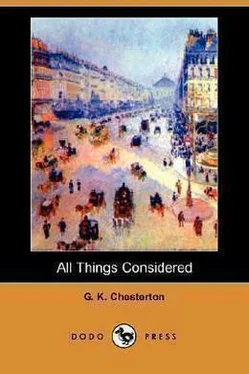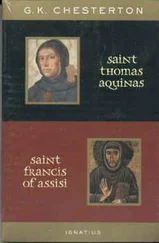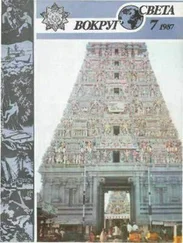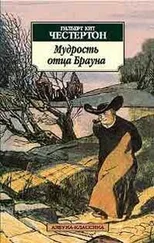Beneath the tide of praise which was obviously due to the dead poet, there is an evident undercurrent of discussion about him; some charges of moral weakness were at least important enough to be authoritatively contradicted in the Nation ; and, in connection with this and other things, there has been a continuous stir of comment upon his attraction to and gradual absorption in Catholic theological ideas. This question is so important that I think it ought to be considered and understood even at the present time. It is, of course, true that Francis Thompson devoted himself more and more to poems not only purely Catholic, but, one may say, purely ecclesiastical. And it is, moreover, true that (if things go on as they are going on at present) more and more good poets will do the same. Poets will tend towards Christian orthodoxy for a perfectly plain reason; because it is about the simplest and freest thing now left in the world. On this point it is very necessary to be clear. When people impute special vices to the Christian Church, they seem entirely to forget that the world (which is the only other thing there is) has these vices much more. The Church has been cruel; but the world has been much more cruel. The Church has plotted; but the world has plotted much more. The Church has been superstitious; but it has never been so superstitious as the world is when left to itself.
Now, poets in our epoch will tend towards ecclesiastical religion strictly because it is just a little more free than anything else. Take, for instance, the case of symbol and ritualism. All reasonable men believe in symbol; but some reasonable men do not believe in ritualism; by which they mean, I imagine, a symbolism too complex, elaborate, and mechanical. But whenever they talk of ritualism they always seem to mean the ritualism of the Church. Why should they not mean the ritual of the world? It is much more ritualistic. The ritual of the Army, the ritual of the Navy, the ritual of the Law Courts, the ritual of Parliament are much more ritualistic. The ritual of a dinner–party is much more ritualistic. Priests may put gold and great jewels on the chalice; but at least there is only one chalice to put them on. When you go to a dinner–party they put in front of you five different chalices, of five weird and heraldic shapes, to symbolise five different kinds of wine; an insane extension of ritual from which Mr. Percy Dearmer would fly shrieking. A bishop wears a mitre; but he is not thought more or less of a bishop according to whether you can see the very latest curves in his mitre. But a swell is thought more or less of a swell according to whether you can see the very latest curves in his hat. There is more fuss about symbols in the world than in the Church.
And yet (strangely enough) though men fuss more about the worldly symbols, they mean less by them. It is the mark of religious forms that they declare something unknown. But it is the mark of worldly forms that they declare something which is known, and which is known to be untrue. When the Pope in an Encyclical calls himself your father, it is a matter of faith or of doubt. But when the Duke of Devonshire in a letter calls himself yours obediently, you know that he means the opposite of what he says. Religious forms are, at the worst, fables; they might be true. Secular forms are falsehoods; they are not true. Take a more topical case. The German Emperor has more uniforms than the Pope. But, moreover, the Pope's vestments all imply a claim to be something purely mystical and doubtful. Many of the German Emperor's uniforms imply a claim to be something which he certainly is not and which it would be highly disgusting if he were. The Pope may or may not be the Vicar of Christ. But the Kaiser certainly is not an English Colonel. If the thing were reality it would be treason. If it is mere ritual, it is by far the most unreal ritual on earth.
Now, poetical people like Francis Thompson will, as things stand, tend away from secular society and towards religion for the reason above described: that there are crowds of symbols in both, but that those of religion are simpler and mean more. To take an evident type, the Cross is more poetical than the Union Jack, because it is simpler. The more simple an idea is, the more it is fertile in variations. Francis Thompson could have written any number of good poems on the Cross, because it is a primary symbol. The number of poems which Mr. Rudyard Kipling could write on the Union Jack is, fortunately, limited, because the Union Jack is too complex to produce luxuriance. The same principle applies to any possible number of cases. A poet like Francis Thompson could deduce perpetually rich and branching meanings out of two plain facts like bread and wine; with bread and wine he can expand everything to everywhere. But with a French menu he cannot expand anything; except perhaps himself. Complicated ideas do not produce any more ideas. Mongrels do not breed. Religious ritual attracts because there is some sense in it. Religious imagery, so far from being subtle, is the only simple thing left for poets. So far from being merely superhuman, it is the only human thing left for human beings.
There is no more dangerous or disgusting habit than that of celebrating Christmas before it comes, as I am doing in this article. It is the very essence of a festival that it breaks upon one brilliantly and abruptly, that at one moment the great day is not and the next moment the great day is. Up to a certain specific instant you are feeling ordinary and sad; for it is only Wednesday. At the next moment your heart leaps up and your soul and body dance together like lovers; for in one burst and blaze it has become Thursday. I am assuming (of course) that you are a worshipper of Thor, and that you celebrate his day once a week, possibly with human sacrifice. If, on the other hand, you are a modern Christian Englishman, you hail (of course) with the same explosion of gaiety the appearance of the English Sunday. But I say that whatever the day is that is to you festive or symbolic, it is essential that there should be a quite clear black line between it and the time going before. And all the old wholesome customs in connection with Christmas were to the effect that one should not touch or see or know or speak of something before the actual coming of Christmas Day. Thus, for instance, children were never given their presents until the actual coming of the appointed hour. The presents were kept tied up in brown–paper parcels, out of which an arm of a doll or the leg of a donkey sometimes accidentally stuck. I wish this principle were adopted in respect of modern Christmas ceremonies and publications. Especially it ought to be observed in connection with what are called the Christmas numbers of magazines. The editors of the magazines bring out their Christmas numbers so long before the time that the reader is more likely to be still lamenting for the turkey of last year than to have seriously settled down to a solid anticipation of the turkey which is to come. Christmas numbers of magazines ought to be tied up in brown paper and kept for Christmas Day. On consideration, I should favour the editors being tied up in brown paper. Whether the leg or arm of an editor should ever be allowed to protrude I leave to individual choice.
Of course, all this secrecy about Christmas is merely sentimental and ceremonial; if you do not like what is sentimental and ceremonial, do not celebrate Christmas at all. You will not be punished if you don't; also, since we are no longer ruled by those sturdy Puritans who won for us civil and religious liberty, you will not even be punished if you do. But I cannot understand why any one should bother about a ceremonial except ceremonially. If a thing only exists in order to be graceful, do it gracefully or do not do it. If a thing only exists as something professing to be solemn, do it solemnly or do not do it. There is no sense in doing it slouchingly; nor is there even any liberty. I can understand the man who takes off his hat to a lady because it is the customary symbol. I can understand him, I say; in fact, I know him quite intimately. I can also understand the man who refuses to take off his hat to a lady, like the old Quakers, because he thinks that a symbol is superstition. But what point would there be in so performing an arbitrary form of respect that it was not a form of respect? We respect the gentleman who takes off his hat to the lady; we respect the fanatic who will not take off his hat to the lady. But what should we think of the man who kept his hands in his pockets and asked the lady to take his hat off for him because he felt tired?
Читать дальше








